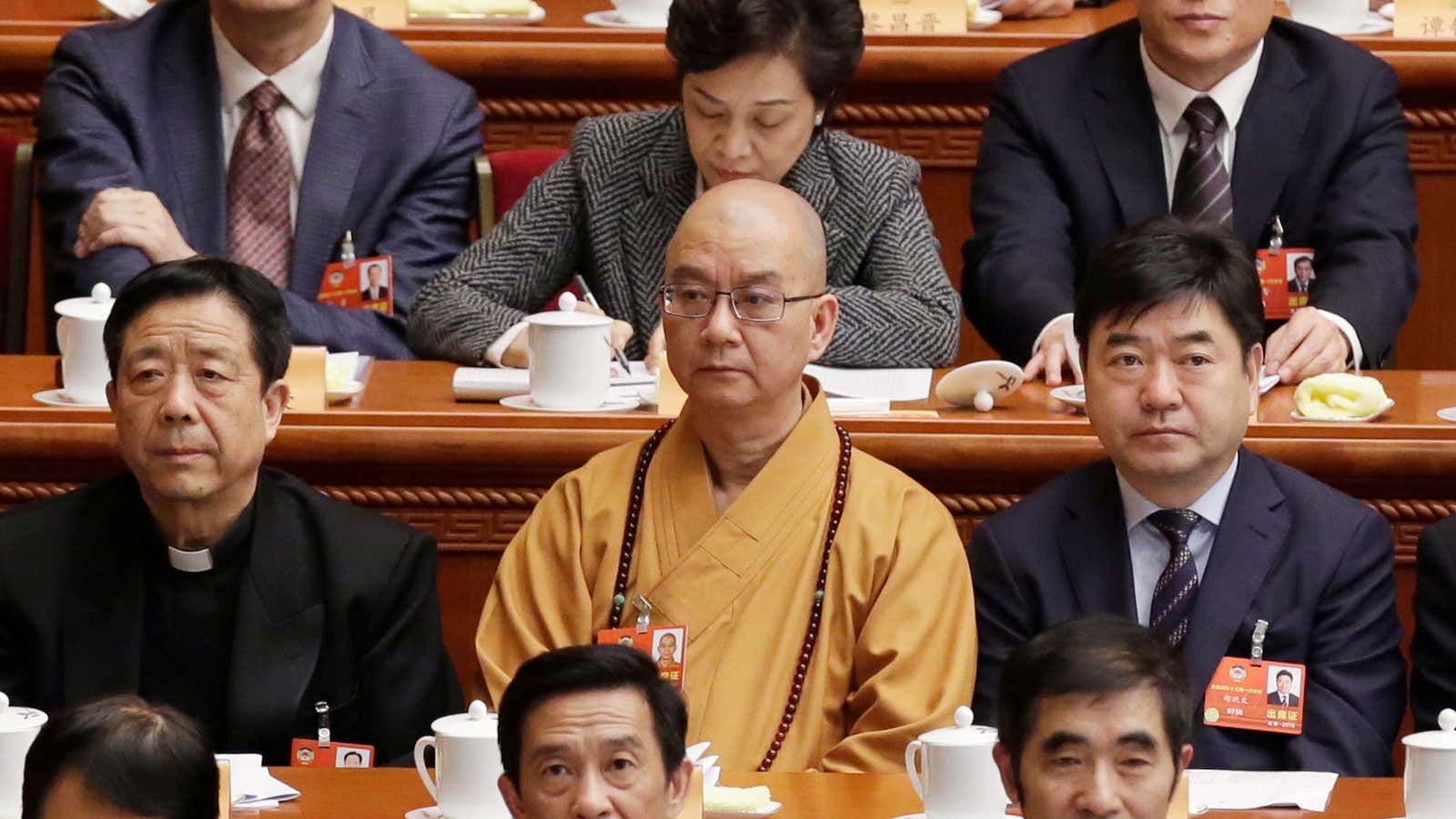One of the most surprising aspects of how #MeToo has taken shape in China is that it’s roiled a Buddhist monastery.
Today (Aug. 15), Shi Xuecheng, one of China’s top monks and abbot of Beijing’s Longquan Temple, resigned as president (link in Chinese) of the government-backed Buddhist Association of China. His stepping down comes as China’s religious authorities began looking into accusations of sexual misconduct in early August. It is unclear if he will remain as the abbot of Longquan, which is well-known for its tech savvy, including its robot monk, and monks from prestigious universities.
In recent weeks, #MeToo in China had roared back to life after authorities tried to crush the movement. It first started on university campuses at the beginning of the year, but discussions were heavily censored. By the summer, however, women began coming forward to speak out against prominent men, including charity organization leaders and journalists. While the movement has resulted in professors being suspended and a charity leader stepping down, Xuecheng’s resignation is especially noteworthy given his connections to Chinese leadership as a member of China’s top political advisory body (link in Chinese).
Earlier, a 95-page letter, penned by two supervisory chancellors of Longquan, had detailed how the 51-year-old took advantage of his position and sent sexually aggressive messages to six female nuns since late last year. One nun has also accused him of rape. The temple has denied the allegations.
